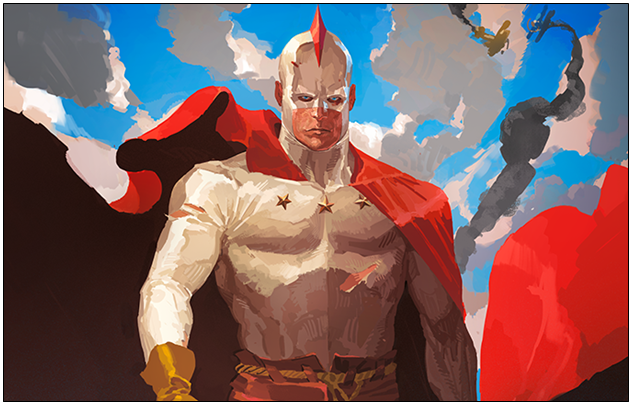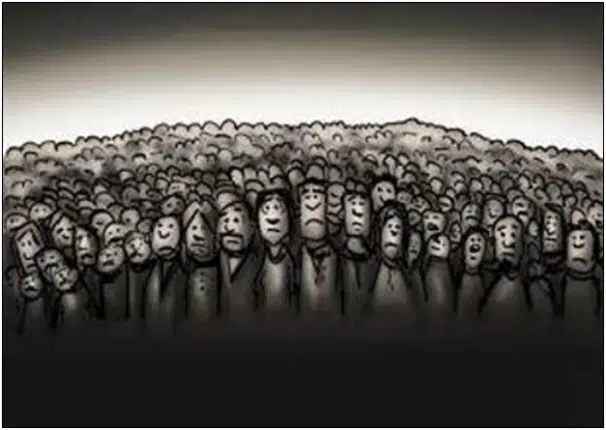Hollywood and other aspects of the entertainment industry including music and publishing tend to be very liberal institutions, it’s no mystery, and a lot of the content it produces often reflects that. Sometimes the messages are subtle and sometimes they are in your face full-blown social justice advocacy, and yet if one considers the broader market, liberals only make up a plurality of the total audience.
Politically, the U.S. is narrowly divided. Each of the major parties’ candidates received more than 60 million votes in 2016. Presently, in addition to the White House, Republicans hold a majority in the Senate, while Democrats have a majority in the House of Representatives.
If that is any indication, there clearly are more potential audiences beyond those of a liberal persuasion yet so much of the entertainment and news content for bigger brands — not all of it, but a lot of it — will include messaging appealing to liberal audiences.
And so, many content creators are instead marketing directly to their audiences — and it’s working.
“The Chosen,” telling the story of the life of Jesus, has now become the largest crowdfunded television series in history, taking in $11 million and counting after its shoestring budget pilot was very well-received and garnered more than 15 million views on social media. That program will be distributed on Vidangel.
Elsewhere, in the realm of science fiction, fantasy and superheroes, many comic book creators are taking on liberal dominance in the industry with independent offerings. Originally dubbed “Comicsgate,” the movement grew out of frustration of fans but also of writers and artists of many long-standing publications who felt the industry was taking overly politicized stances on social issues, almost always with a liberal slant.
For example, recently in the Marvel universe, in this case the comics, not the movies, Captain America has denounced his country because the fictional president in the story is a Russian agent. No joke. Other examples include the feminization of several once male characters — even though there’s been a long line of compelling, strong female hero and villain characters for decades and alternately there could be new characters. But, instead, you get female Thor, female Spiderman, female Iron Man, or in movies and television, female Ghostbusters, female Doctor Who and so forth. The latest Star Wars movie, The Last Jedi, was rejected by a large segment of fans who felt it was similarly too driven by gender politics. The star of Captain Marvel, Brie Larson, recently criticized white male movie reviewers she perceived did not like A Wrinkle in Time. You get the idea.
A quick look at industry demographics probably helps explain a great deal of the outcry. According to data compiled by Kristen McLean of NPD BookScan in 2017, the industry skews heavily white and male. 69 percent of comics and graphic novels readers are white, and 63 percent are male. When you consider the audience that gets their books directly from comic shops, the backbone of the industry, the numbers shoot up to 71 percent white and 72 percent male.
This is worth underscoring: Many of the choices being made and the offerings are going away from that traditional target audience. On one hand the marketing push for females is obviously to expand the appeal of the genre as a whole, a positive development overall as it has had some success, but on the other it may be coming at an additional cost to the core audience because the push in certain cases has been too radical.
Sometimes, subtle messaging can be okay depending on how it’s handled and assuming it incorporates a variety of viewpoints. It’s also important occasionally to separate the art from the artist for the sake of enjoyment since often times a creator’s personal politics do not have much of an impact on a production.
Suffice to say, while some of the aforementioned offerings have been better received than others, among fans there has been a growing dissatisfaction who felt that it all has become far too politically correct, too overtly focused on left-wing social justice issues and too divisive. In short, it’s not everyone’s cup of tea.
So, the free market has responded in the comic book industry.
Richard Meyer, Jon Malin and Brett Smith raised over $400,000 on Indiegogo for their graphic novel, “Jawbreakers,” depicting a military group of ex-superheroes turned mercenaries. Meyer is an outspoken critic of the comic book industry he says has become too liberal. So, he decided to go fund his own book, betting that enough fans agreed with him. It paid off with the big return via crowdfunding, but not before his publisher abruptly cancelled a deal to distribute the book amid pressure from within the industry and fans. Meyer is now self-publishing the book via a start-up company, Splatto Comics.
Martina Markota was a burlesque dancer and performance artist in New York City before she was blacklisted in the industry for being a supporter of President Donald Trump. She is also a critic of anti-beauty campaigns in art. Leaving behind the performance art world for the time being, she opted to turn her dancer persona, “Lady Alchemy,” into a fictional graphic novel with artist MG, depicting a journalist who discovers she has powers to see the demonic influences on the world and must free the city from a mind controlling media executive. It has raised $35,000 and counting on Indiegogo. But not before her business account with Chase was suddenly cancelled with no reason given, and she says she thinks it might be because of her political views. Markota has since found a new bank to do business with, and will be publishing under her own company, Magnum Opus.
Other indie offerings that sprung out of the movement include “Red Rooster” that has raised almost $180,000, by Mitch Breitweiser after he and his family were criticized and harassed in the industry simply for his supporting President Trump, Ethan Van Sciver’s “Cyberfrog” that raised more than $620,000 in two offerings on Indiegogo and who has served as one of the most vocal spokespersons for the movement, Mike S. Miller’s “Lonestar” raised more than $113,000, Chuck Dixon and Timothy Lim’s political satire “Trump’s Space Force” raised $72,000, “Tales From Beyond the Gate” has raised more than $4,000 as of this writing — and many more that are being highlighted at sites like Indiecron.com.
Unfortunately, the movement has also led to some threats of political violence and death threats against members of the community or even those simply perceived to be a part of the community. Two recent examples include Comicsgate supporter Edwin Boyette and Alterna Comics founder Peter Simeti — the latter whose apparent “crime” was taking a neutral stance on the movement — who in recent weeks were both targeted with “swatting,” the life-threatening act of calling the cops falsely reporting an extremely violent crime in progress either to intimidate or in the hopes of injuring or killing a political opponent as a SWAT team shows up to respond.
Despite incidents like these, fans have responded positively to the new books being offered. While not every project will ultimately succeed or is even necessarily politically driven, and the movement itself may not last forever, it is a perfect example of how individual creators in the market responded to pent-up demand by fans and resentment against larger publishers perceived to have an agenda to deliver something that was being clamored for. And it all happened in a year when comic shops saw overall sales decline for the second year in a row.
It’s nothing short of revolutionary.
In other media CRTV and The Blaze recently merged to form BlazeTV, a subscription-based news and talk channel with a conservative viewpoint.
These are all refreshing developments in the arts and media that have long been dominated by liberal institutions run on antiquated platforms. And it’s long overdue. More please. These creators seem to be taking the advice of the deceased Andrew Breitbart, who urged conservatives to get involved with pop culture, for example, at a 2009 event hosted by Americans for Limited Government speaking to activists, “[T]he only way we’re ever going to be able to sell the idea is if we learn that the media is the message… We have like a ten to twenty year battle on our hands… Over 40 years of that dominance and the conservative movement following Paul Weyrich’s, ‘we lost the culture war… let’s not fight it, let’s not engage in it,’ that’s why we’re in deep peril. It’s not because of our political point of view. It’s not because we don’t have the right ideas… It’s because we don’t play that game.”
Of course, there are some exceptions in traditional Hollywood and the entertainment industry where sometimes they do cater to more conservative audiences.
Lionsgate and Roadside Attractions produced the Christian drama “I Can Only Imagine” on just a $7 million budget and took in $85 million at the box office.
Affirm Films and OBD Films teamed together on the indie film, “Paul, Apostle of Christ,” although less successful, on a $6 million budget still pulled in $23 million.
In a more secular, suburban genre, “Last Man Standing,” a family comedy starring Tim Allen and depicting a conservative character generated public outcry when it was cancelled by ABC despite high ratings, and the show was rescued by Fox.
These serve as examples that indeed there is a market for conservative, faith or just apolitical audiences that may be underserved and they show that when Hollywood and the entertainment industry do produce something that meets that demand, they can be successful.
But they are barely scratching the surface, which is why some content creators are now taking a more direct approach to funding these endeavors — and are winning. What is curious is why larger investors haven’t caught on to create media holding companies that might cater to these broader audiences who don’t even necessarily want conservative content per se, but just apolitical content that is not so agenda-driven. Based on some of the success already seen, this is a major untapped market.
Robert Romano is the Vice President of Public Policy at Americans for Limited Government and in another life would have gone to comic book school.
Updated to include “Lonestar.”








